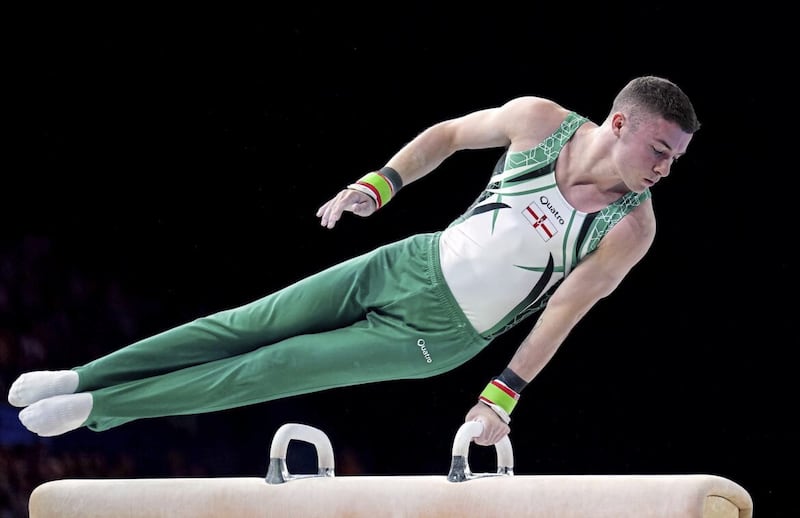COULD we have seen the last Commonwealth Games, well at least in its present format, as a multi-sport event?
The 2026 Games were in doubt with no takers as host city until Victoria in Australia stepped forward late in the day last year.
Now it seems that the Games’ demise may be more imminent, with Victoria withdrawing as host city for 2026, saying it was not prepared to spend up to $7bn (£3.65bn) on “a 12-day sporting event”.
Victorian premier, Daniel Andrews, said the cost of hosting the event had grown from an earlier estimate of $2.bn (£1.04) and indicated that his government would now spend the money on housing and sporting infrastructure.
The Commonwealth Games Federation have reacted, it is reported, with anger, by describing the announcement as “hugely disappointing”, and said it remained “committed to finding a solution for the Games in 2026 that is in the best interest of our athletes and the wider Commonwealth Sport Movement”.
Andrews said yesterday: “Last year when the Commonwealth Games authorities approached us and needed someone to step in to host the 2026 Commonwealth Games, as a state we were happy to help out, but of course not at any price. The Games will not proceed in Victoria in 2026.”
- Commonwealth Games Federation calls Victoria's 2026 exit ‘hugely disappointing'
The Commonwealth Games, known as the Empire Games until 1950, were first hosted in Hamilton, Canada in 1930.
Fermanagh man Bobby Kerr who won the gold in the 200m at the 1908 Olympic Games, was one of the prime movers in getting the Games off the ground and was part of the organising committee.
Ireland sent a team representing the entire island and won a solitary silver medal, from Tipperary native Bill Britton who finished runner-up in the hammer.
Originally awarded to Johannesburg, the 1934 Games took place in London after being switched following concerns about the possible treatment of black and Asian athletes by South African officials.
Teams representing both Northern Ireland and the Free State took part, although there is some confusion as to exactly which state some athletes were representing.
The NIAAA sent teams to the athletics and cycling events but Paddy Bermingham, a garda from Co Clare was named to compete in the discus.
The Commonwealth Games Federation lists him as “Northern Ireland” although no mark is shown against his name in the official results.
The lawn bowls team was described as “Ireland” on the scoreboard and in results and was selected by the Irish Bowling Association, an all-island governing body.
However, the team members’ clubs (Larne, Cavehill, and Shaftesbury) were all in Northern Ireland. Some years later they were recategorised as Northern Ireland.
There was no ambiguity at the 1938 Games or subsequently with Northern Ireland solely being represented.
Over the years Northern Ireland has accumulated some 37 gold, 46 silver and 59 bronze medals, including a bumper haul of seven gold, three from boxing, seven silver, and four bronze in Birmingham last year.
Athletes to have won gold medals over the years include household names such as athletes Dame Mary Peters, Mike Bull; gymnast Rhys McClenaghan and boxers Jim McCourt, Barry McGuigan, and Wayne McCullough.
Ironically the 2022 Commonwealth Games in Birmingham were one of the most successful ever, welcoming over 5000 competitors from 72 countries across eight sports and breaking all attendance records with tickets sales of 1.3 million making it the most popular ever of the seven staged in the United Kingdom.

The NIAAA sent teams to the athletics and cycling events but Paddy Bermingham, a garda from Co Clare was named to compete in the discus. The Commonwealth Games Federation lists him as "Northern Ireland" although no mark is shown against his name in the official results.
The lawn bowls team was described as 'Ireland' on the scoreboard and in results and was selected by the Irish Bowling Association, an all-island governing body. However, the team members' clubs (Larne, Cavehill, and Shaftesbury) were all in Northern Ireland.
Some years later they were recategorised as Northern Ireland. There was no ambiguity at 1938 Games or subsequently with Northern Ireland solely being represented.
Over the years, Northern Ireland has accumulated some 37 gold, 46 silver and 59 bronze medals including a bumper haul of seven gold, three from boxing, seven silver, and four bronze in Birmingham last year.
Athletes to have won gold medals over the years include household names such as athletes Dame Mary Peters, Mike Bull; gymnast Rhys McClenaghan and boxers Jim McCourt, Barry McGuigan, and Wayne McCullough.
Ironically, the 2022 Commonwealth Games in Birmingham were one of the most successful ever, welcoming over 5000 competitors from 72 countries across eight sports and breaking all attendance records with tickets sales of 1.3 million making it the most popular ever of the seven staged in the United Kingdom.







